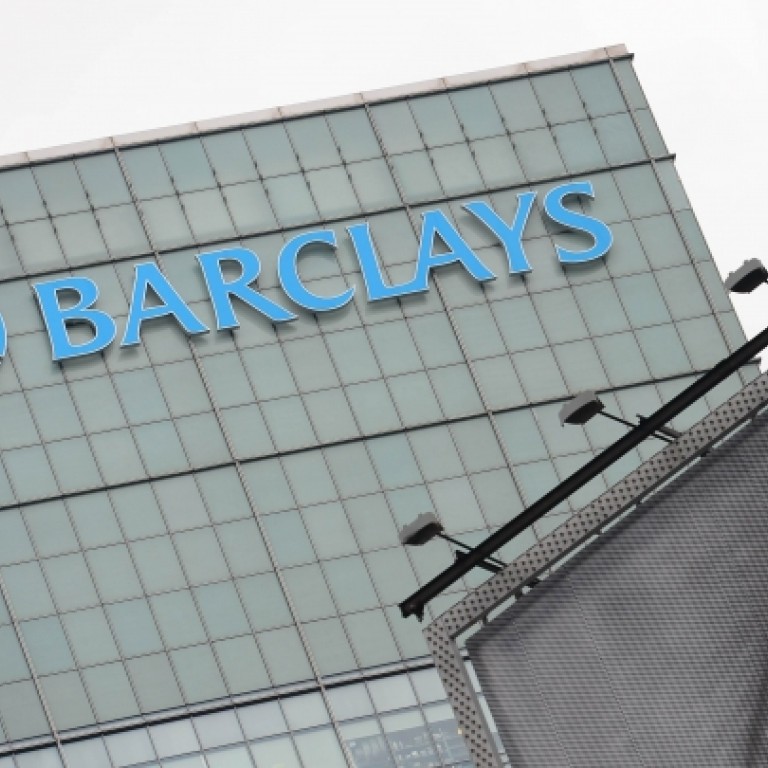
Defeated by a Barclays press release
Every time an excited press release arrives about a new report from a public relations or corporate communications executive representing a private bank, my hopes rise. Please, please may this one contain some nugget of inspiration I can tease into something interesting.
Every time an excited press release arrives about a new report from a public relations or corporate communications executive representing a private bank, my hopes rise. Please, please may this one contain some nugget of inspiration I can tease into something interesting. But rarely am I rewarded for ploughing through the “revelations” about the amazing habits of High Net Worth Individuals (HNWI) as the Wealth Management industry calls them. You wonder how anyone became and stayed rich before private bankers were invented. But I digress. I remind myself, again, to try to take them seriously, because maybe one will surprise me, and who knows when I may need to forsake journalistic poverty and go over to what we hacks call the dark side, in search of enough money to pay the school fees.
And sometimes I show will and trudge along to the actual press conference. But last time Swiss bank UBS invited me, they conducted the proceedings in Chinese. No advance warning, no translation. Maybe it was revenge for my questioning the need for UBS to keeps its vast art collection during the bank bailouts. Better forget that job in bank corp coms after all.
Wednesday's offering comes from Barclays Wealth Insights: Origins and Legacy: The Changing Order of Wealth Creation. Deep breath. These days rich folks take less than 20 years to amass their fortunes, it reveals.
I’m not sure why this is riveting, but “Ogilvydo” must think so. What am I missing? This in-depth survey of 2,000 rich people must reveal something. But realistically, would rich clients spill the beans, knowing it would be published? Highly unlikely. The seriously wealthy are usually very private.
So I learn that four out of five wealthy people globally made loot via profits from property and that 21 per cent inherited their money. What would be interesting is how many of the Hong Kong tycoons rolled up their sleeves and built their empires from scratch. But this seems to be a “global” figure.
Another startling statistic is that two-thirds (62%) of HNWIs who give to charity are prompted by duty or responsibility, compared to 27 per cent who say that it brings them personal fulfilment. There’s no clue what motivates the other 11 per cent – the interesting ones.
This is “in-depth study into how wealth is now being made, spent and shared across the world,” reveals that wealth is being created more quickly today than in the past, with 30 per cent of Hong Kong’s HNWIs saying that they have experienced a five-fold increase in their wealth over their lives so far and 38 per cent seeing increases in their wealth during the recent economic downturn. Lights go on in my head. This is interesting. How did they make money in the slum? Not explained.
It says Hong Kong’s wealthy are more likely to save than spend. Saving and investing was cited as the most popular use of wealth with two-thirds (66%) selecting this as their first choice option. How did they save and still made 30 per cent during the slump? No explanation.
This is getting frustrating. No meat so far. It goes on to say that spending on lifestyle, travel and social activities was much less popular, with only 10 per cent of respondents choosing this as their preferred option. Less popular than what – saving and investing? Well yes, rich people become rich and stay rich because they don’t generally like spending.
My interest is fading and I can find nothing concrete. Mr Rickie Chan, Hong Kong Market Head at the Wealth and Investment Management division at Barclays says: “the report navigates the global landscape of wealth, examining how different cultures prepare for the future and consider their legacy through wealth and inheritance planning and philanthropy.” So it’s good news for banks then. In a low-tax environment like Hong Kong, the private banks’ Easter Bunny tax specialist is underemployed, so he has to busy himself with succession planning and philanthropy: helping people give their money away.
“Many HNWIs around the world now prefer to give their money to family and friends and charitable causes in their lifetime rather than as inheritance, seeing their wealth as an "enabler.” I don’t think Stanley would agree, but never mind.
In Hong Kong, “14 per cent of HNWIs plan to give their cash to family, friends and charity in their lifetime, compared to 8 per cent who prefer to do it as an inheritance. So what about the rest? “Generally, more of Hong Kong’s respondents (18%) are planning to pass on 70-80 per cent of their assets to family, friends and charity during their lifetime.” That’s splendid news for banks: rounding up the global assets, international tax issues, tracking down the scattered offspring and setting up their trust funds.
But have I got that right? Fourteen per cent, then 8 per cent…then 18 per cent will pass on 70-80 per cent: statistical gobbledegook to me. Please, private banks, send out reports with something to say that simple journalists can understand.

